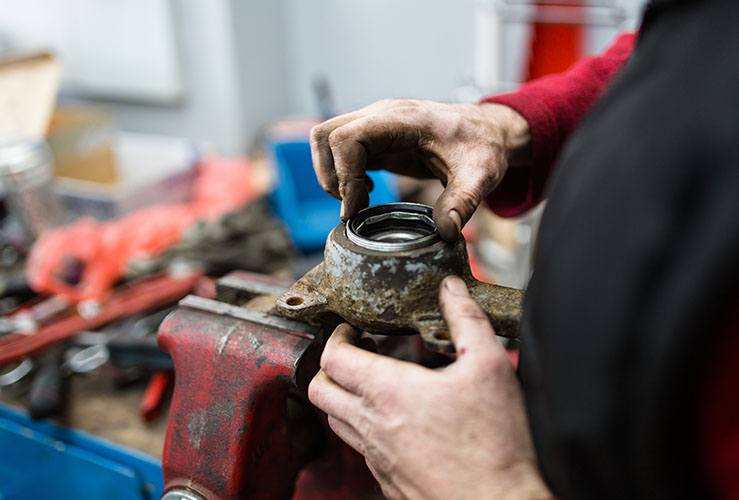Most drivers, when told by their mechanic that their wheel bearings need replacing, will respond with a blank expression. But while these components may be mysterious, they are fundamental to a smooth ride.
Here we'll help you get your bearings so you have a better idea if yours are playing up.
A wheel bearing is a circle of ball bearings secured in a ring called a 'race'. This simple yet ingenious design helps your wheels turn with the minimum of friction. They are found in cars, trucks and planes.
In cars, the car wheel bearings rotate on the end of the axles and fit snugly into the wheel hub. The hub is a kind of cup-shaped component found in the centre of each wheel. Located on the hub are lug bolts which are used to hold the wheel in place.

It's not easy to identify what sound your wheel bearings are making because you'll be driving at the time. However, the following should help....
The sound of a damaged car bearing will start faintly and gradually get louder. It has been compared to the sound flipping a deck of cards against a bicycle spoke.
In order to identify if the damaged car wheel bearing is on the left or right, try driving your car steadily down a road at around 40mph while swaying (gently) from side to side. If a worrying sound is heard when turning left, the bearing issue is likely on the left - and vice-versa.
Be aware that damaged tyres can make a noise similar to a damaged wheel bearing - especially if they have worn out in patches. Be sure to check your tyres.
Wheel bearings are designed and manufactured to last a very long time, and as such can take a great deal of punishment. However, poorly-lubricated bearings can become very hot - which can cause irreparable damage.
Equally, if a wheel bearing seal is damaged, water and other debris can enter the component and it will fail - as evidenced by that thrumming, rumbling noise.
Firstly, don't panic. Car wheel bearings are still operative for some time after you first start hearing the noise. But with that being said, you should address the issue swiftly, as there is an outside chance the car bearing could lock up - something you do not want to happen while driving.
If your car wheel bearing locks up you won’t be able to move your car and will likely need to call for breakdown recovery.
Don’t have suitable breakdown cover in place? Get a breakdown recovery policy quote from us here.
If one wheel bearing fails, there is no need to replace them on both sides. The remaining bearings should last for some years to come.
Most drivers will enlist an experienced mechanic to replace their wheel bearings. As it is a rather labour-intensive process, expect costly invoice.
Changing a wheel bearing by yourself can be a fairly challenging job to tackle on your own, even if you have some basic mechanical experience. Having a press can make the task easier.
If you decide to replace the entire hub-and-bearing unit, since accessing the wheel bearing alone is extremely time consuming and tricky, you can expect to pay more for parts.
Visiting your local garage is the least stressful option.
If you're concerned about your car wheel alignment, read out handy blog post here.





